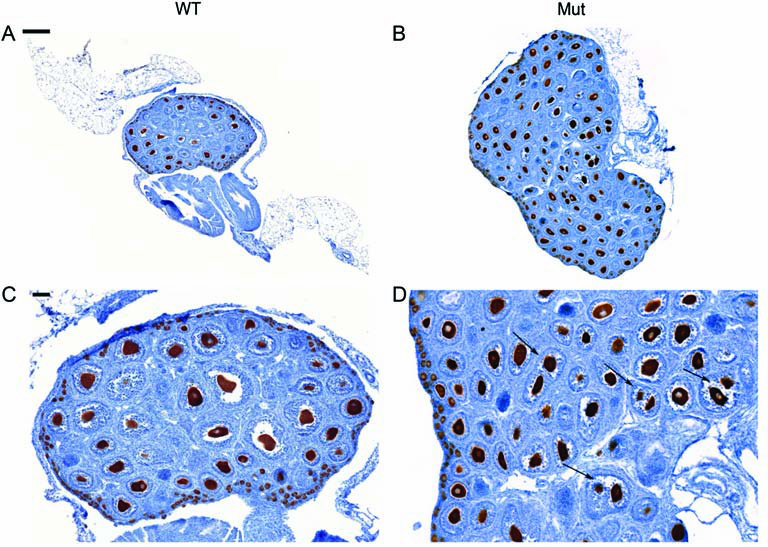A protein that regulates cell division is related to sterility
2013/04/24 Lakar Iraizoz, Oihane - Elhuyar Zientzia

The P27 protein, formerly known as cell division regulator, may also be related to sterility. A group of researchers from the UPV/EHU, the Cruces University Hospital and the Sloan-Kettering Memorial have reached this conclusion in their research. The research has been published recently in the journal Human Reproduction.
Carmen de la Hoz, a researcher at the Department of Cell Biology and Histology of UPV-EHU, recalled that the starting point of the research was genetically modified mice, which were removed from the gene that encodes this protein in a cancer research project: “The importance of the role of this protein in the regulation of cell division was known, which is usually modified in cases of cancer. It is customary to create knock out mice that do not contain the gene under study to analyze the function of this protein and see what happens when it does not exist.” The discovery of the gene and the creation of free mice of this gene was the work of the research team of Dr. Andrew Koff at the Memorial Sloan-Kettering in New York, with which the current results have been obtained.
When studying females without P27 proteins, it was observed that they had more obocytes and follicles and that, however, they were sterile. In particular, “we realized that, by its striking morphology, so far no one had mentioned in any article, the multiobocite follicles were abundant in these mice in the perinatal stage. These follicles are special, because the follicles normally have an oocyte,” explains Germen. Although it seems paradoxical, the presence of multiobocite follicles coincides with sterility, since a few days after the birth of the brood deteriorate. “We have to analyze more mechanisms, but it is very likely that when creating these follicles and increasing the amount of oocytes there will appear a certain negative selection that will provoke their degeneration,” added Jairo Pérez, a researcher who is completing his doctoral thesis in the Refrigeration group.
According to the researchers, discoveries can open a new path in the investigation of human sterility. “In humans, the role of this protein and others of their family in people with limited fertility has not yet been investigated. Sometimes it is not known which specific molecular mechanisms hide behind fertility problems,” says Roberto Matorras, an expert in assisted human reproduction.

Gai honi buruzko eduki gehiago
Elhuyarrek garatutako teknologia



